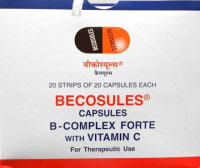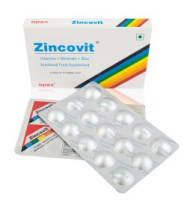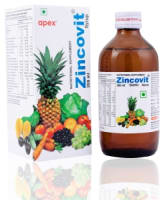USED FOR:
Allergic disorders
Bacterial infections
Fungal infections
COMPOSITION:
Clobetasol Topical (0.05% w/w)
Gentamicin Topical (0.1% w/w)
Miconazole Topical (2% w/w)
Therapeutic Uses:
derma

No interaction found

WEIGH RISKS VS BENEFITS
Zincoderm gm Cream may be unsafe to use during pregnancy.Animal studies have shown adverse effects on the foetus, however, there are limited human studies. The benefits from use in pregnant women may be acceptable despite the risk. Please consult your doctor.

Zincoderm gm Cream is probably safe to use during lactation. Limited human data suggests that the drug does not represent a significant risk to the baby.

Zincoderm gm Cream may cause blurring of your vision for a short time just after its use. Do not drive until your vision is clear.

There is limited information available on the use of Zincoderm gm Cream in patients with kidney disease. Please consult your doctor.

There is limited information available on the use of Zincoderm gm Cream in patients with liver disease. Please consult your doctor.
Uses of Clobetasol Topical
Clobetasol Topical is used in the treatment of allergic disorders.
How to use Clobetasol Topical
This medicine is for external use only. Use it in the dose and duration as advised by your doctor. Check the label for directions before use. Clean and dry the affected area and apply the cream. Wash your hands after applying, unless hands are the affected area.
How Zincoderm gm Cream works
Clobetasol Topical is a topical corticosteroid (anti-inflammatory medicine). It works by reducing redness, itching, and swelling caused by various skin conditions.
Common Skin thinning, Contact dermatitis.
Q. Is Clobetasol Topical a steroid?
Clobetasol Topical is a potent topical corticosteroid used for the treatment of itching, redness, dryness, inflammation, and discomfort of various scalp and skin conditions.
Q. Is Clobetasol Topical used for treating hair loss?
Clobetasol Topical is used for the treatment of various scalp and skin conditions; however, it is not used for the treatment of hair loss. Talk to your doctor if you need treatment for hair loss.
Q. Does Clobetasol Topical cause hair loss?
Long-term use of steroids may damage your hair, causing hair loss especially when you use an airtight dressing. Always follow the advice of your doctor regarding its use and talk to your doctor in case you have hair loss while using Clobetasol Topical.
Q. Is Clobetasol Topical good for acne?
Clobetasol Topical is not be used for the treatment of acne. Talk to your doctor if you need any treatment for acne.
Q. What is Clobetasol Topical?
Clobetasol Topical belongs to a group of medicines called topical corticosteroids. It helps to reduce the redness and itchiness of certain skin problems.
Q. What is Clobetasol Topical used for?
Clobetasol Topical is used to help reduce the redness and itchiness in certain skin problems like relapsing eczema, psoriasis, lichen planus, dermatitis and other skin conditions that have not responded to milder steroid creams or ointments.
Q. Is Clobetasol Topical good for athlete's foot/ ringworm?
Clobetasol Topical is not be used for conditions like athlete's foot or ringworm. Please talk to your doctor for the treatment of your condition.
Q. Is Clobetasol Topical an antifungal drug?
Clobetasol Topical is not an antifungal drug. It is a topical corticosteroid.
Q. Does Clobetasol Topical cause thinning of skin?
Thinning of skin is an uncommon side effect of Clobetasol Topical. It may also cause stretch marks. Talk to your doctor if you experience these side effects while using Clobetasol Topical.
Uses of Gentamicin Topical
Gentamicin Topical is used in the treatment of bacterial infections.
How to use Gentamicin Topical
This medicine is for external use only. Use it in the dose and duration as advised by your doctor. Check the label for directions before use. Clean and dry the affected area and apply the cream. Wash your hands after applying, unless hands are the affected area.
How Zincoderm gm Cream works
Gentamicin Topical is an antibiotic. It kills bacteria by inhibiting synthesis of essential proteins, required by bacteria to carry out vital functions.
Common Facial swelling, Allergic reaction, Itching, Skin redness.
Expert advice for Gentamicin Topical
Inform your doctor if you experience itching, skin rashes, swelling of face, lips, throat or difficulty in breathing.
Discontinue use and consult your doctor if you develop irritation, sensitization or a superinfection
Avoid getting this medication into your eyes, nose and mouth. If this happens wash your face thoroughly with water.
Tell your doctor if you are suffering from inflammation of the middle ear (otitis media), kidney or liver problem, open wound or damaged skin.
Tell your doctor if you are pregnant, planning to become pregnant or are breastfeeding.
It should not take if patient is allergic to gentamicin or any of its ingredients.
Q. Is gentamicin topical a macrolide, steroid or a sulfa drug?
Gentamicin topical does not contain sulfa and is not a macrolide, or steroidal drug. It is a broad spectrum aminoglycoside
Q. Does gentamicin topical cause hearing loss or burn?
Yes gentamicin topical can cause hearing loss if used inappropriately. It can cause burning of eyes.
Uses of Miconazole Topical
Miconazole Topical is used in the treatment of fungal infections.
How to use Miconazole Topical
This medicine is for external use only. Use it in the dose and duration as advised by your doctor. Check the label for directions before use. Clean and dry the affected area and apply the cream. Wash your hands after applying, unless hands are the affected area.
How Zincoderm gm Cream works
Miconazole Topical stops the growth of fungus by preventing them from making their protective covering.
Expert advice for Miconazole Topical
Avoid direct contact of cream/ gel with your eyes. In case of direct contact, wash your eyes with water and seek immediate medical attention.
Tell your doctor if you are suffering from liver problems, blood disease or if you have been exposed to HIV or if you have stomach, shoulder, or lower back pain, fever, chills, nausea, foul-smelling vaginal discharge or vomiting.
Tell your doctor if you often have vaginal yeast infections (e.g., once a month or 3 in 6 months).
Tell your doctor if you are pregnant, planning to become pregnant or are breastfeeding.
Do not use if you are allergic to miconazole or any of its ingredients.
Do not use if you have kidney or liver problems.
Oral gel should not be used in infants
Q. Can miconazole/ Monistat be used for conditions for BV (bacterial vaginosis), ring worms, and urinary tract infections?
Yes, miconazole can be used for BV (bacterial vaginosis). It is used for treatment and prevention of fungal infections of the oral cavity, ring worms and superinfections due to gram-positive bacteria. Miconazole can be taken in rare fungal infections of the urinary tract
Q. Does miconazole cause burning sensation?
Yes, burning sensation on the skin and vaginal burning can be seen with use of miconazole
Q. Does miconazole cause dry skin?
No, miconazole is not known to cause drying of skin
Q. Is miconazole safe for babies?
Yes, miconazole topical is safe for babies. It may be used in nappy rashes and oral fungal infections, as advised by the doctor. However, oral gel should not be used in infants < 4 months of age
Q. Is miconazole a steroid?
No, miconazole is not a steroid. It is an imidazole (organic compound) and belongs to the class of antifungal agents
Q. Is miconazole same as ketoconazole?
Both miconazole and ketoconazole are antifungal medicines. However, they are prescribed for different type of fungal infections
Q. Does miconazole work for yeast infections?
Yes, miconazole works for oral and vaginal yeast infections.


 Zincoderm gm Cream
Zincoderm gm Cream  Bookmark
Bookmark





















